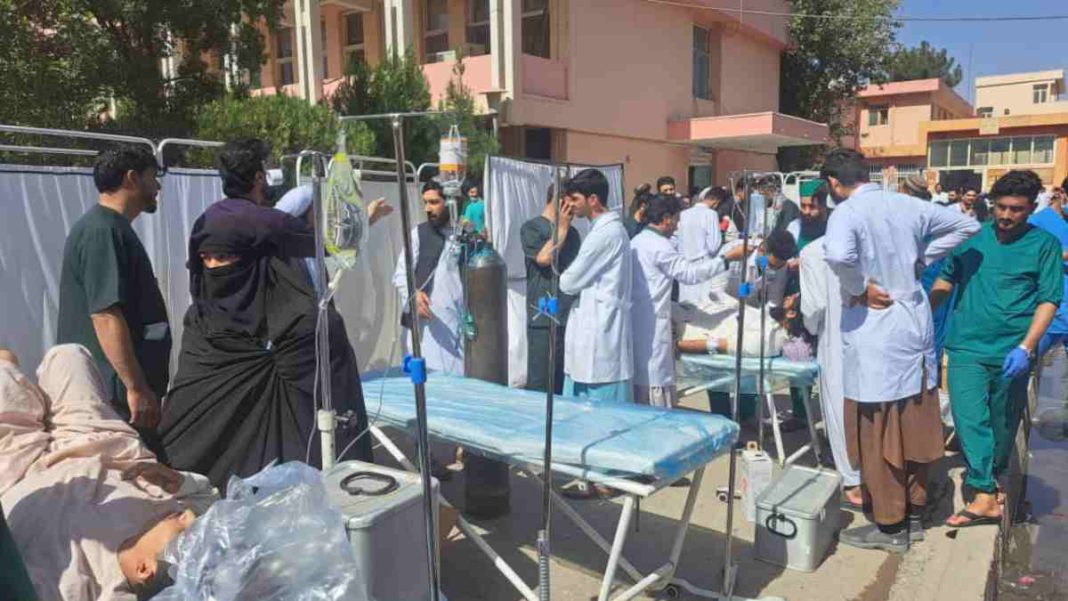AFGHANISTAN: According to a Taliban government spokesperson on Sunday, the death toll from the powerful earthquakes that shook western Afghanistan has now reached 2,060. It’s one of the most lethal earthquakes to hit the nation in two decades.
The multiple quakes, which occurred on Saturday, struck approximately 35 km (20 miles) northwest of Herat city, with one registering a magnitude of 6.3, the U.S. Geological Survey (USGS) stated.
Earlier on Saturday, Mosa Ashari, the province’s head of emergency management, stated, “So far more than 1,000 injured women, children, and elderly citizens have been included in our records, and about 120 people have lost their lives.”
However, Abdul Wahid Rayan, the spokesperson for the Ministry of Information and Culture, has indicated that the death toll resulting from the Herat earthquake is actually higher than initially stated.
He mentioned that around six villages have been completely devastated, and numerous civilians are trapped under the rubble. He urgently appealed for assistance.
Late Saturday, the United Nations provided a preliminary count of 320 fatalities but later clarified that this figure was still in the process of verification.
Local authorities estimated around 100 individuals had lost their lives, with 500 more sustaining injuries, as per the same update from the UN Office for the Coordination of Humanitarian Affairs.
As per the update, 465 homes have been reported as demolished, while an additional 135 have suffered damage.
“Partners and local authorities anticipate the number of casualties to increase as search and rescue efforts continue amid reports that some people may be trapped under collapsed buildings,” said the UN.
Videos from Herat Central Hospital depicted injured individuals receiving treatment outside the hospital’s main building while connected to intravenous drips, indicating the urgent and overwhelming need for emergency care.
In other images, the aftermath of the earthquake in Herat’s Injil district was evident, with debris obstructing roads, making rescue operations more challenging.
Herat, located 120 kilometres (75 miles) east of the Iranian border, holds the esteemed status of being Afghanistan’s cultural capital. The province is home to an estimated 1.9 million residents.
Afghanistan frequently experiences earthquakes, particularly in the Hindu Kush mountain range, due to its proximity to the convergence point of the Eurasian and Indian tectonic plates.
In June last year, the province of Paktika endured the impact of a 5.9-magnitude earthquake, resulting in the tragic loss of over 1,000 lives and leaving tens of thousands homeless.
Also Read: Morocco Grapples with Devastation as Earthquake Death Toll Surpasses 2,000



